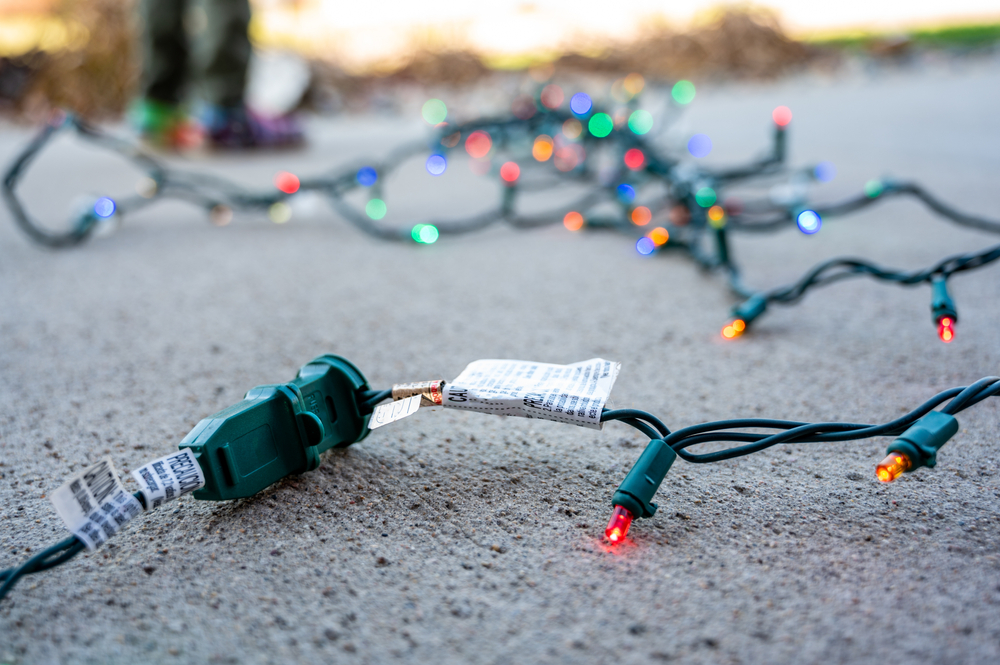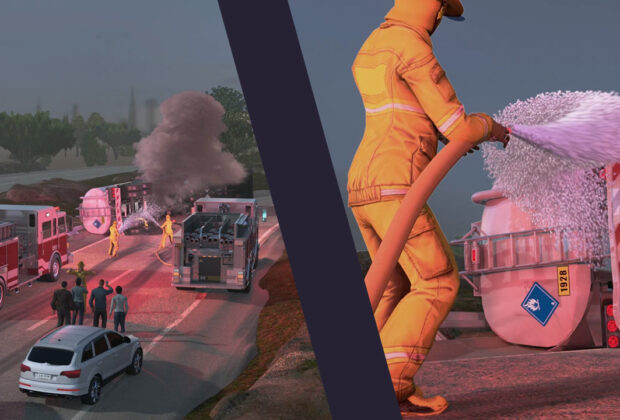The Holiday season is a time for all Canadians to connect with their family and friends and celebrate the things we are all thankful for.
It is also the time of year where most Canadians increase their household electricity use through Christmas lights, space heaters, cooking large meals and using a number of other electric devices in the home.
This increase in use of electricity can lead to dangerous situations such as electrical shock and house fires. These 5 tips from Danatec by We Know Training can help you and your family remain safe while decorating and using electric devices this holiday season.
1. Avoid Overloading
If you decorate your home with Christmas lights during the holiday season, it’s important to properly distribute light strands across a number of extension cords to avoid overloading a singular outlet.
Each extension cord comes with a set wattage rating. If the combined wattage of your Christmas lights exceeds the recommended wattage rating of your extension cord, it can lead to overheating and a possible fire hazard.
Make sure to only use extension cords in proper working condition, with no tears in their exterior coating.
2. Finding the Best Christmas Tree
Whether you celebrate Christmas with an artificial tree or a real one, it’s important to make sure you are taking the proper precautions to avoid creating an unnecessary fire hazard.
If you’re shopping for an artificial tree this year, make sure to purchase one labeled “fire retardant.” Although this doesn’t guarantee your tree won’t catch fire, it does decrease the risk of lights causing an incident.
If you’re using a real tree, make sure to purchase one that has been freshly cut with the least amount of dead, dry needles. The perfect tree will be entirely green with needles that are hard to pull from the branch and that bend instead of breaking.
Once you’ve brought your tree home, cut the bottom at a 45-degree angle and stick it in water to keep it fresh. Allowing your tree to dry out makes it more likely to catch fire from electrical sparks. Check the water level of your tree daily to always ensure it doesn’t dry out from the heat caused by indoor Christmas lights.

3. Turn off Lights When You’re Not Home
An electrical safety tips list wouldn’t be complete without a reminder to turn off all lights indoors and outdoors when you are away from your home.
Not only will turning off your lights save you money on your power bills, it also greatly reduces the risk of an electrical short which could cause a house fire.
A great purchase can be a timer for outdoor Christmas lights, ensuring you will never forget your lights on for longer than intended.
4. Indoor and Outdoor Light Safety
It’s important to check all indoor and outdoor lights to ensure they are in proper working condition with no cracks, frayed ends, or missing ground connections – proper electrical safety requires time and maintenance.
Make sure that all outdoor lights being are plugged into GFCI outlets. The benefit of a GFCI outlet is electric shock protection for you when using portable cord-and-plug connected electrical equipment in an indoor or outdoor environment.
The GFCI outlet trips when there is an electrical current on an unintended path, such as through water.When hanging your lights do not use nails or staples that can penetrate the wires. If you pierce the protecting rubber and expose the wires it can lead to an electrical fire. The heat from the wires can heat up surrounding material and moisture exposure can cause sparks.
Indoor lights should be turned off at the end of every evening, and regularly checked to ensure they are not overheating, and have not been recently damaged. Always check all lights to make sure that they are properly functioning.
5. Winter Heating
During the holiday season, the weather outside might be frightful, and the fire may be delightful, but while you’re letting it snow, it’s important to make sure any electric heating devices are being used properly to ensure your family’s safety.
Proper care should be taken with heaters to maximize safety. Space heaters are a great way to heat targeted areas of a home, but they need to be used with caution.
A space heater should never be left unattended and you should make sure that your heater is pointed away from walls and furniture, and that it is not near any sources of water. If you use a radiator to heat your home, keep your decorations at a reasonable distance.
For more electrical safety tips by an industry expert, check out Electrical Safety Tips for the Holidays by Terry Becker.




Comments are closed.